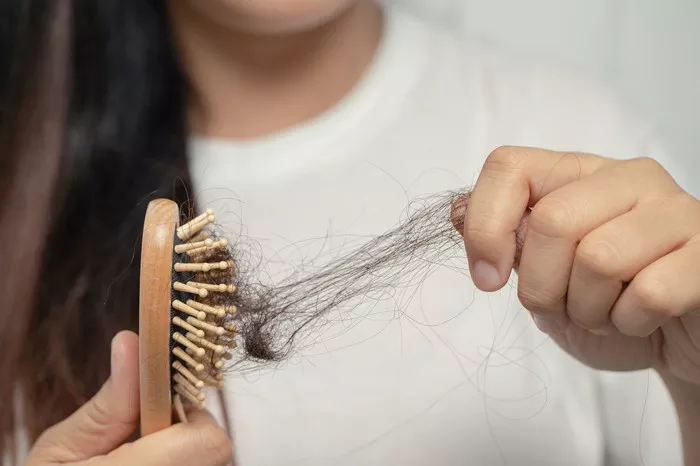Hair breakage is a common concern for many individuals, affecting both men and women of all ages. It occurs when the hair shaft becomes weak and fragile, leading to split ends and breakage along the length of the hair. While some degree of hair breakage is normal, excessive or persistent breakage may indicate underlying health issues or poor hair care practices. In this article, we will explore the various factors that contribute to hair breakage, including dietary influences, stress, medical conditions, hair care practices, preventive measures, and when to seek medical advice.
Overview of Hair Breakage:
Hair breakage occurs when the protective outer layer of the hair shaft, known as the cuticle, becomes damaged or worn down, leaving the inner layers vulnerable to breakage. Common signs of hair breakage include split ends, short broken strands of hair, and overall thinning or loss of hair density.
Dietary Influences:
Nutrition plays a significant role in maintaining healthy hair. Essential nutrients such as zinc, iron, and folic acid are vital for supporting hair growth and strength. Deficiencies in these nutrients can lead to weak, brittle hair that is prone to breakage. Incorporating a balanced diet rich in fruits, vegetables, lean proteins, and whole grains can help ensure adequate intake of these essential nutrients and promote healthy hair growth.
Stress and Hair Health:
Stress is known to have a profound impact on overall health, including hair health. Chronic stress can disrupt the normal hair growth cycle, leading to a condition known as telogen effluvium. In telogen effluvium, a significant number of hair follicles enter the resting phase prematurely, resulting in excessive shedding and hair breakage. Managing stress through relaxation techniques, regular exercise, and adequate sleep can help minimize its impact on hair health.
Medical Conditions:
Several medical conditions can contribute to hair breakage. Thyroid imbalances, such as hypothyroidism or hyperthyroidism, can disrupt the normal functioning of the hair follicles, leading to brittle, fragile hair. Scalp conditions such as eczema or psoriasis can cause inflammation and irritation, weakening the hair shaft and increasing the risk of breakage. Hormonal imbalances, such as polycystic ovary syndrome (PCOS), can also affect hair growth and texture, resulting in hair breakage and thinning.
Hair Care Practices:
Certain hair care practices can exacerbate hair breakage. Over-brushing or combing, especially when the hair is wet, can cause excessive tension on the hair shaft and lead to breakage. Likewise, excessive heat styling, such as blow-drying, straightening, or curling, can damage the hair cuticle and make it more prone to breakage. Harsh chemical treatments, including bleaching, perming, or coloring, can also weaken the hair shaft and increase the risk of breakage. Avoiding these damaging practices and opting for gentler alternatives can help minimize hair breakage and promote healthier hair growth.
Preventive Measures and Treatments:
Preventing hair breakage begins with adopting healthy hair care habits. This includes using a mild shampoo and conditioner suitable for your hair type, avoiding excessive heat styling, and minimizing the use of harsh chemical treatments. Additionally, incorporating a balanced diet rich in essential nutrients and staying hydrated can support overall hair health. Regular trims can help remove split ends and prevent further breakage, while deep conditioning treatments can nourish and strengthen the hair shaft. In cases where underlying medical conditions contribute to hair breakage, addressing the underlying cause is essential for effective treatment.
When to See a Doctor:
While some degree of hair breakage is normal, persistent or excessive breakage may indicate an underlying health issue that requires medical attention. If you experience sudden or severe hair breakage, along with other symptoms such as hair thinning, scalp irritation, or changes in hair texture, it is important to consult a healthcare professional. A thorough evaluation can help identify any underlying medical conditions contributing to hair breakage and determine the most appropriate course of treatment.
In conclusion, hair breakage can be caused by a variety of factors, including dietary influences, stress, medical conditions, and hair care practices. By adopting healthy hair care habits, including a balanced diet, stress management techniques, and gentle hair care practices, you can help prevent hair breakage and promote overall hair health. However, if you experience persistent or excessive hair breakage, it is important to seek medical advice to rule out any underlying health issues and receive appropriate treatment.


